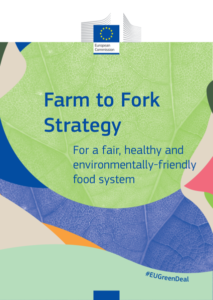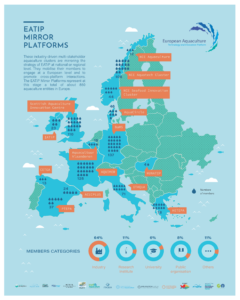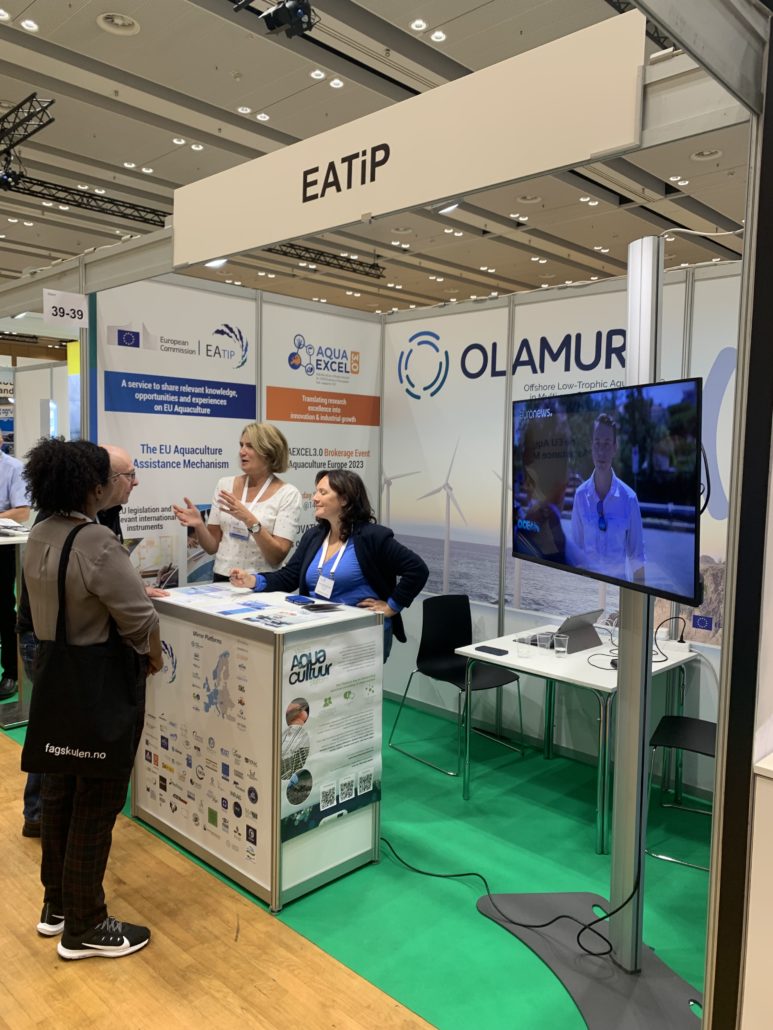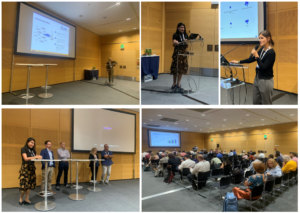EATiP welcomes the publication by the European Commission (DG MARE) of a communication on the Strategic Guidelines for a more sustainable and competitive EU aquaculture for the period 2021 to 2030.
Of particular importance to us is the clear commitment given to the objective of increasing knowledge and innovation, one of four cross cutting objectives that cover 13 areas of work identified within the Communication.
This much anticipated document takes into account the future of the aquaculture sector referenced in the context of important policy developments such as the European Green Deal and the Farm to Fork Strategy – and also takes into account the ongoing impact of the Covid-19 pandemic. Of the four cross cutting objectives identified, the remaining three consider; building resilience and competitiveness, participating in the green transition and ensuring social acceptance and consumer information.

The Farm to Fork Strategy & EU Green Deal highlight the strategic potential for farmed seafood.
As the guidelines themselves note, “knowledge and innovation (including the use of digital technology) are key to achieve the other objectives [set out in the Communication] and they are especially important for building the resilience and competitiveness of aquaculture and ensuring its green transition”.
Horizon Europe, the forthcoming EU framework programme for research and innovation is set to play an important part in the realisation of these objectives. Sustainable aquaculture is identified as an important priority within Horizon Europe where it is hoped that aquaculture research and innovation will ensure a faster response to the current and future challenges and opportunities of the sector whilst avoiding a duplication of efforts and creating synergies across other research areas.
The multi stakeholder and collaborative approach is central to the function of EATiP and the development of our Strategic Research and Innovation Agenda. As the new strategic guidelines note, further efforts are suggested in several areas that are highly complementary to our aims and current working methodology. Specifically those listed in the Communication cover:
- Creating a framework for cooperation that brings together public authorities, industry, researchers, and educators, both at national and regional/local levels. This framework should include the development of innovation clusters for sustainable aquaculture.
- Fostering the development and matching of research and innovation strengths across Member States and regions. This should include smart-specialisation strategies aimed at building full value chains across the EU.
- Fostering effective dissemination of research and innovation results to industry end-users and the general public, as well as their exploitation, including by means of the close monitoring of the establishment and implementation of solid dissemination and exploitation plans of EU funded projects.
- Promoting complementarity and synergies between research projects.
- Facilitating access to EU funds for research and innovation in the aquaculture sector, by providing a clear overview of the available EU funding.

EATiP currently operates with 16 national / regional innovation clusters across 11 nations. Will the Guidelines encourage more clusters to form?
EATiP will continue to work on all these fronts and the emphasis on the development of innovation clusters is something that EATiP particularly welcome – noting the vital role that the current 16 national & regional Mirror Platforms currently play within our organisation. Welcome too is the commitment given to the setting up on an EU Aquaculture Assistance Mechanism, not only in terms of assisting in the sharing of best practice but also in the development on an online platform hosting information on EU funding and EU funded projects.
Two further significant themes also emerge from the guidelines with regard to innovation.
It is encouraging that emphasis is placed on promoting investment in innovative solutions. As the Communication goes on to note, “investors often enter unfamiliar territory when investing in innovation” and this can be particularly true for aquaculture. As such we welcome commitment that the EU’s BlueInvest initiative will continue to bring together investors and entrepreneurs in the aquaculture sector and that a financial instrument will be set up with EMFAF and InvestEU contributions which will be available to support investment in sustainable aquaculture activities and technologies. This will be in addition to that support afforded by individual EU Member States.
Finally, the key area of skills, education and training are acknowledged, and we look forward to further development of the themes referenced in the Communicaiton relating to the “promotion of specialised curricula and knowledge on aquaculture… …as well as life-long training for farmers on innovative approaches for the aquaculture sector”.
EATiP looks forward to building on our strong relations with the European Commission and other linked stakeholders in the delivery of the ambitions contained within the newly published Commuication and will ensure that technology, knowledge and innovation remain at the forefront of a sustainable European aquaculture sector. The role that EATiP and our Mirror Platforms have in the development of European aquaculture is something that we have already been discussing with the European Commission and with the publication of these guidelines and the imminent publication of both the Horizon Europe work programmes and EMFAF funding mechanism these proposals will be progressed further.
An exciting decade of innovation in European aquaculture is underway!





